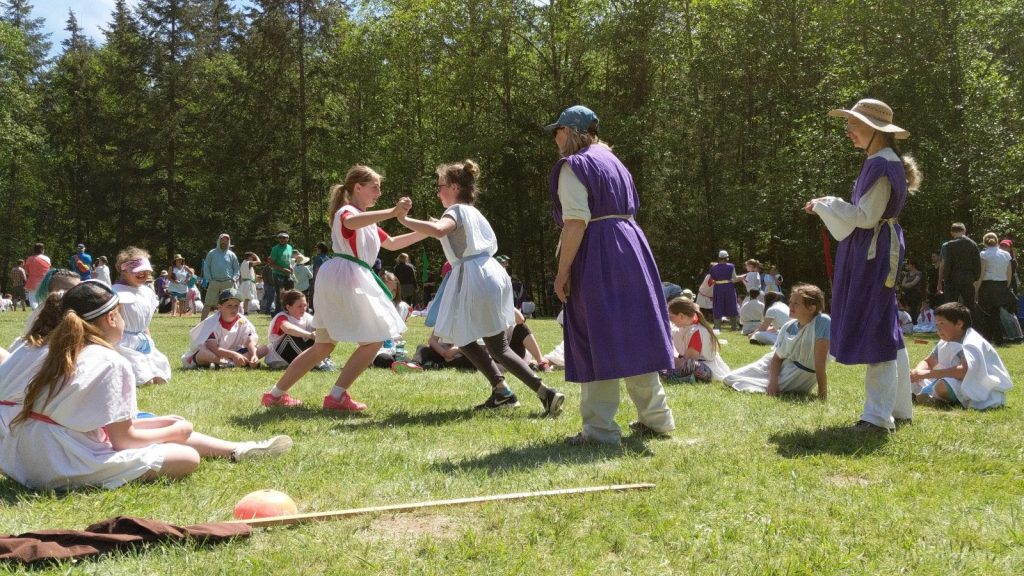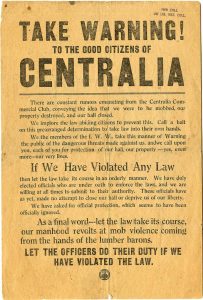Every May, fifth graders in Waldorf schools around the state meet for a weekend event called the Pentathlon. Based on the original Greek games, students compete in archery, discus, long jump, high jump, javelin, relay races and the ever-popular Greek wrestling.*
At 11 years old, children are approaching puberty but mostly have yet to experience adolescence with its awkwardness and mood swings. Their adult teeth have grown in (an important sign of developmental readiness in Waldorf), and their limbs are balanced and graceful.

When he was developing the Waldorf curriculum, Rudolf Steiner chose fifth grade as the ideal time to introduce children to ancient Greek, Indian, and Persian cultures specifically because their physical and intellectual development mirrors that of those golden civilizations. Fifth graders embody the Greek ideal!
By the time they arrive at the Pentathlon, students have been studying ancient Greece for months. Whether or not they intend to compete in every category, they have a little training in each of them. Some anticipate the Pentathlon with joy, some dread it. Mostly, they’re excited, open, and looking to the gods—teachers and administrators wearing traditional Greek garments—to set the tone.
When they are assembled, the students (also in togas) encounter one of the day’s biggest challenges: reassignment to a city-state made up not of their classmates but of students from the other schools. For the duration of the event, they will compete as a team with these new friends. They are, together, Sparta, Athens, Carthage or Mycenae.
Specifics differ from year to year and school to school, but an essential component of the event is the ritual entrance of Nike Athena, a student who’s been chosen to carry the flaming torch that signals the beginning of the games. Students may recite an appeal to the gods they’ve learned in class: “Oh Athena, grant me endurance…” or “Oh Artemis, guide my arrows to fly straight and true…”
After the goddess’ invocation, competition begins simultaneously in several arenas. The greater the number of schools participating, the greater number of contests. Onlookers gather at the edges of the archery range to watch students cast their arrows. Others keep their distance but cheer on their favorite Greek wrestler or discus thrower. Against a backdrop of tension, skill and chance, winners and losers begin to emerge.
By late afternoon, contests are finished and everyone gathers for the closing ceremony. An earthly representative of the great Apollo, echoing the spirit of the ancient games, bestows a crown of laurel leaves to one individual in each city state who best embodies the spirit of the games. This is the highest honor given at the games.
Those who excelled in each category are rewarded with silk ribbons for first through fifth place, as expected. But other achievements—Grace and Beauty, Strength, and Endurance—are also rewarded with ribbons.
These last winners often receive the most applause from teammates, friends, and parents who’ve witnessed that child’s public struggle against their own limitations. It is a moment of generosity by the entire community, a recognition of earnest effort that underscores one of the many lessons of the Pentathlon: it’s important to recognize people for excellence. And there are lots of ways to excel.
Lori Lively is Assistant Editor at Works in Progress. For more information on Waldorf education, visit www.olympiawaldorf.org or call 360.943.0906.
*Greek wrestling is performed when a circle is drawn around two students of roughly equal size who must push against each other using their only their arm strength. The exercise, according to Steiner, develops a student’s inner will forces. The first one to be knocked off balance and pushed out of the ring loses the round.

Be First to Comment